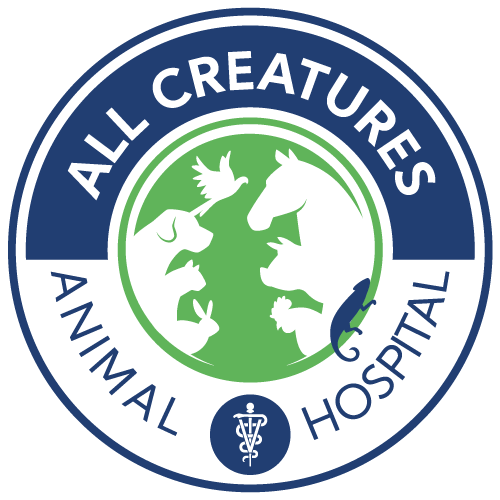Now through the end of February, take $50 off dental cleanings!
Prioritize Pet Dental Care for a Long, Healthy Life
Have you been prioritizing your pet’s dental care? There can be severe consequences if you fail to provide proper dental care for your animal. A visit to All Creatures Animal Hospital in Granbury, TX for a dental exam and teeth cleaning can help keep your pet’s dental health in top shape.
How does the state of a dog's teeth affect their overall health?
When we talk about our dogs' health in general, the teeth are always part of that assessment. When we look at our dogs' teeth, we tend to see if they've got any kind of tartar buildup, gingivitis, or periodontal disease. If that's present, that's an active infection there, and that can affect their overall well-being and their oral health. It could be painful; they could have some bad breath in there or abscesses. And then systemically, that infection can affect other organs. They can develop cardiac disease, liver disease, and kidney disease from these.
What should I do if I see plaque or tartar on my dog's teeth?
So, our dogs' teeth are very similar to ours. The best thing we can do for our dogs' oral and dental health would be to brush their teeth. There are several products that we can give as an addition to brushing, but by far, brushing is the best thing to keep them healthy. If we're noticing tartar on their teeth or if we're noticing that their gums are more red or inflamed, we've already got disease present. If that is observed, you should make an appointment and have those teeth and gums assessed professionally. They may be in need of some professional health assessment and treatment.

Does my dog need to go under anesthesia for a dental cleaning?
We do. You know, at-home brushing—most dogs are pretty good for that. You can train them to accept a dental toothbrush or a finger cot with some bristles on there. But as far as getting a deep clean that will actually clean under their gums and allow us to do a comprehensive oral exam—to look under their tongue, look in their cheeks, look inside and outside of their teeth—and to get them cleaned, polished, and scaled requires anesthesia. They just don't understand what's going on, and I would imagine it would be pretty scary for them to have these pieces of equipment in their mouth. So, anesthesia makes it more comfortable for them and less stressful.
Is there anything else you would like us to know about pet dog dental health?
If you're noticing or wondering if your dog needs any professional assessment or treatment for dental health, please give us a call or visit our website. We've got a lot of information there. We have a lot of blogs, and we definitely have information about dental health and what you can do at home and what we could do for your dog as well.
Why Pet Dental Care is Important
Did you know that oral disease can impact the organs of the body? Periodontal disease is a very common condition among both cats and dogs. It happens when plaque hardens into tartar, and it develops under the gumline, damaging the tissues that connect the jawbone to the teeth. Periodontal disease can make its way into the bloodstream and affect several organs of the body. While this disease can be controlled with treatment, your pet may already experience severe pain, tooth loss, or swollen or bleeding gums.
The best ways to prevent periodontal disease and the dreadful repercussions are with regular pet dental care and teeth cleanings from a veterinarian.
Annual Pet Dental Exams and Teeth Cleanings
Pet dental exams are recommended every year because these exams make it possible for our veterinarian to safely and thoroughly check the mouth, teeth, and gums of your pet for signs of common dental problems. Teeth cleanings are done to keep teeth clean and help the teeth to resistant the buildup of plaque. Our Granbury veterinarian takes pet dental care seriously, and you should, too. Your pet will feel happier and will make it healthier.

Do You Want Your Pet to Be Happy and Healthy? Prioritize Its Dental Care
Call All Creatures Animal Hospital today at (817) 326-6262 for more information or to schedule an appointment with our veterinarian.
